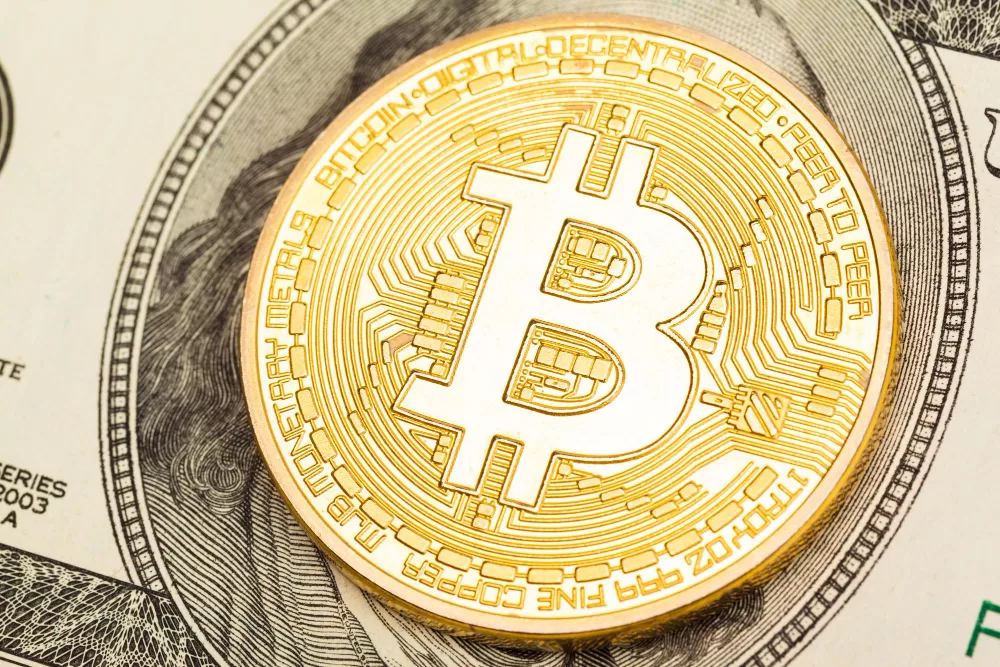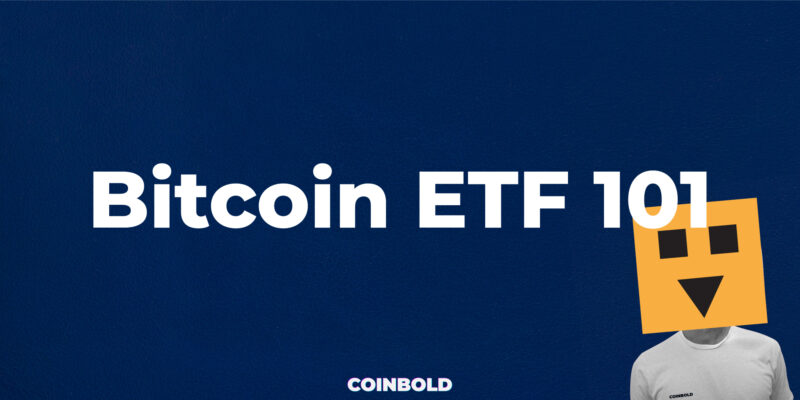Bitcoin, the revolutionary digital currency, has taken the world by storm. As it continues to gain traction in the financial realm, more and more investors are considering it a viable addition to their portfolios. But with the evolution of cryptocurrency comes innovative investment opportunities, one of the most notable being Bitcoin ETFs. If you’ve ever wondered about Bitcoin ETFs, Bitcoin futures, or how to invest in Bitcoin through ETFs, you’re in the right place.
Bitcoin ETFs: Unraveling the Future of Investments
In recent years, Bitcoin ETFs have emerged as a hot topic in the world of finance. But what exactly are Bitcoin ETFs, and why should you be interested in them?
Bitcoin ETFs, short for exchange-traded funds, are investment funds that track the price of Bitcoin and offer investors exposure to the world’s leading cryptocurrency without requiring them to own actual Bitcoins. This innovative investment tool bridges the gap between traditional financial markets and the booming world of cryptocurrencies.
Why You Should Read This Article
This comprehensive guide aims to demystify the complex world of Bitcoin ETFs. Whether you’re a seasoned investor or a novice exploring the cryptocurrency landscape, this article will provide you with valuable insights into the intricacies of Bitcoin ETFs, Bitcoin futures, and everything in between. By the end, you’ll have a clear understanding of how Bitcoin ETFs work, how to invest in them, and what factors to consider before diving into the world of digital currencies.
Table of Contents

1. What is Bitcoin ETF?
Understanding the Basics
Bitcoin ETFs, often referred to as exchange-traded funds, are financial instruments designed to track the price of Bitcoin in the market. Unlike traditional investments, where you directly own the asset, Bitcoin ETFs allow you to invest in Bitcoin indirectly. This means you won’t need a digital wallet or worry about the complexities of storing cryptocurrencies securely.
A Bitcoin ETF operates by holding Bitcoin assets and then issuing shares to investors. These shares are traded on traditional stock exchanges, making it convenient for investors to buy or sell Bitcoin ETFs just like any other stock. By investing in a Bitcoin ETF, you gain exposure to the price movements of Bitcoin without having to navigate the intricacies of cryptocurrency exchanges.
How It Works
At its core, a Bitcoin ETF functions by holding a certain amount of Bitcoin, which is determined by the fund’s net asset value (NAV). As an investor, you buy shares of the ETF, and the ETF, in turn, holds the equivalent value in Bitcoin. The ETF’s price is directly linked to the underlying asset, which is Bitcoin in this case.
One of the significant advantages of Bitcoin ETFs is their simplicity and accessibility. Investors can buy and sell these ETFs through traditional brokerage accounts, making it an attractive option for those who are already familiar with stock trading. Moreover, Bitcoin ETFs offer liquidity, allowing investors to enter and exit positions quickly without the typical delays associated with cryptocurrency exchanges.
In the next section, we will explore the crucial steps involved in investing in Bitcoin ETFs, helping you make informed decisions about your financial future.
2. Investing in Bitcoin ETFs: A Step-by-Step Guide
Choosing the Right ETF
Selecting the appropriate Bitcoin ETF is a pivotal decision that can significantly impact your investment outcomes. Several factors should be considered before making a choice:
- Expense Ratios and Fees: Compare the expense ratios of different Bitcoin ETFs. Lower fees can enhance your overall returns over time.
- Tracking Error: Assess the tracking error, which measures the discrepancy between the ETF’s performance and the actual performance of Bitcoin. A lower tracking error indicates a more accurate representation of Bitcoin’s price movements.
- Liquidity: Opt for ETFs with high trading volumes and liquidity. Higher liquidity ensures that there are enough buyers and sellers in the market, reducing the bid-ask spread and the potential impact on the ETF’s price.
- Fund Size: Consider the size of the ETF’s assets under management (AUM). Larger funds tend to have more stability and may offer a more accurate reflection of Bitcoin’s market movements.
Setting Up Your Investment Once you’ve chosen a suitable Bitcoin ETF, the next step involves setting up your investment. Follow these steps to get started:
- Open a Brokerage Account: If you don’t already have a brokerage account, open one with a reputable brokerage firm. Ensure that the brokerage platform offers the specific Bitcoin ETF you wish to invest in.
- Deposit Funds: Deposit the desired amount of funds into your brokerage account. This amount will be used to purchase shares of the Bitcoin ETF.
- Place an Order: Using your brokerage account, place an order to buy shares of the selected Bitcoin ETF. Specify the number of shares you want to purchase and confirm the order.
- Monitor Your Investment: Keep a close eye on your investment. Regularly monitor the performance of the Bitcoin ETF, stay updated on market trends, and be aware of any news or developments that could impact the cryptocurrency market.
By following these steps and staying informed, you can effectively invest in Bitcoin ETFs and potentially benefit from the digital currency’s growth.
In the subsequent sections, we will explore the differences between Bitcoin futures and Bitcoin ETFs, managing risks associated with these investments, and answering common questions that investors often have.
3. Bitcoin Futures vs. Bitcoin ETFs: Decoding the Differences
Bitcoin Futures Contracts
Bitcoin futures contracts are agreements to buy or sell a specific amount of Bitcoin at a predetermined price on a specified future date. These contracts allow investors to speculate on the future price of Bitcoin without owning the cryptocurrency itself. Futures contracts are commonly traded on futures exchanges and are settled in cash when they expire.
Comparing Futures and ETFs
While both Bitcoin futures and ETFs offer exposure to Bitcoin, they differ significantly in their mechanics and risk profiles. Here’s a brief comparison:
| Feature | Bitcoin Futures | Bitcoin ETFs |
|---|---|---|
| Type of investment | Financial contract | Exchange-traded fund (ETF) |
| Traded on | Futures exchanges | Stock exchanges |
| Settlement | Cash settlement | Delivery of shares |
| Exposure to Bitcoin | Yes, without owning Bitcoin | Yes, by owning shares of the ETF |
| Leverage | Often involves leverage | Don’t typically involve leverage |
| Ownership of Bitcoin | No | Yes, indirect ownership through the ETF |
| Risk profile | Higher risk | Lower risk |
4. Managing Risks: What You Need to Know
Volatility and Risk Management
The cryptocurrency market, including Bitcoin ETFs, is known for its volatility. While this volatility presents opportunities for significant profits, it also comes with substantial risks. Here are some strategies to manage volatility-related risks:
- Diversification: Diversifying your investment portfolio across different assets, including traditional stocks and bonds, can help spread the risk. Avoid putting all your funds into a single investment, even if it’s a promising one like a Bitcoin ETF.
- Risk Tolerance Assessment: Assess your risk tolerance before investing in Bitcoin ETFs. Understand how much volatility you can comfortably handle without making impulsive decisions during market fluctuations.
Regulatory Factors The regulatory environment significantly impacts the cryptocurrency market, including ETFs. Keep an eye on regulatory developments, especially those related to the SEC. The SEC’s decisions and statements can influence market sentiment and prices.
In the subsequent section, we will address some common questions investors have about Bitcoin ETFs, providing clear and concise answers.
5. Frequently Asked Questions about Bitcoin ETFs
Q1: What is the SEC, and why is it important for Bitcoin ETFs?
A: The SEC, or the U.S. Securities and Exchange Commission, is a regulatory body overseeing the securities industry. Its decisions regarding Bitcoin ETFs can impact their approval, influencing their availability and market dynamics.
Q2: Are Bitcoin ETFs the same as owning actual Bitcoins?
A: No, owning Bitcoin ETFs is not the same as owning actual Bitcoins. ETFs provide indirect exposure to Bitcoin’s price movements through shares traded on stock exchanges.
Q3: How are Bitcoin ETFs taxed?
A: Taxation of Bitcoin ETFs depends on your country’s tax laws. In the U.S., for example, Bitcoin ETFs are subject to capital gains tax upon sale.
Q4: Can I invest in Bitcoin ETFs through a retirement account?
A: It depends on your retirement account provider. Some brokerage firms allow investors to trade Bitcoin ETFs within specific retirement accounts, providing tax advantages.

6. The Future of Bitcoin ETFs: Trends and Predictions
Market Trends
The landscape of Bitcoin ETFs is constantly evolving. As the popularity of cryptocurrencies continues to rise, several trends have emerged in the Bitcoin ETF market:
- Institutional Adoption: Institutional investors, including mutual funds and investment companies, are increasingly showing interest in Bitcoin ETFs. Their participation can lead to increased liquidity and stability in the market.
- Actively Managed ETFs: Some ETFs are actively managed, meaning fund managers make strategic decisions about the ETF’s holdings. Actively managed ETFs aim to outperform the market and can offer unique investment opportunities.
Predictions for the Future Looking ahead, experts in the field have made several predictions regarding the future of Bitcoin ETFs:
- Further Regulatory Clarity: Regulatory bodies are expected to provide clearer guidelines for cryptocurrency investments, potentially leading to more diverse and innovative ETF products.
- Continued Growth: The market for Bitcoin ETFs is anticipated to grow as more investors seek exposure to cryptocurrencies. This growth could lead to the launch of new ETFs with varying strategies and focuses.
7. Exploring Bitcoin Strategy ETFs
Introduction to Bitcoin Strategy ETFs
Bitcoin Strategy ETFs are a subset of Bitcoin ETFs that employ specific strategies to optimize returns. These strategies can include actively managing the ETF’s holdings, diversifying investments across multiple cryptocurrencies, or employing technical analysis to make trading decisions.
Pros and Cons
- Pros: Bitcoin Strategy ETFs offer potential for higher returns due to active management. They may also provide diversification benefits by investing in a range of cryptocurrencies.
- Cons: Actively managed ETFs often come with higher fees compared to passively managed ETFs. Additionally, the success of these ETFs depends on the fund manager’s ability to make profitable trading decisions.
Investors should carefully consider these factors before choosing to invest in Bitcoin Strategy ETFs.
8. The Role of Institutional Investors in Bitcoin ETFs
Institutional Adoption
Institutional investors, including hedge funds, asset management companies, and pension funds, are increasingly entering the Bitcoin ETF market. Their participation adds credibility to the asset class and can positively influence market sentiment.
Impact on the Market
The involvement of institutional investors can lead to higher trading volumes, increased liquidity, and reduced price volatility in the Bitcoin ETF market. Their long-term investment strategies can contribute to the overall stability of the market.
9. The Rise of Cryptocurrencies: Beyond Bitcoin ETFs
Evolving Cryptocurrency Landscape
While Bitcoin remains the dominant cryptocurrency, there are numerous other cryptocurrencies, often referred to as altcoins, with unique features and use cases. Examples include Ethereum (ETH), Ripple (XRP), and Litecoin (LTC).
Diversifying Your Portfolio
Investors interested in cryptocurrencies can diversify their portfolios by considering a mix of assets. Diversification spreads risk across different assets and can potentially enhance overall returns.
10. The Importance of Research and Due Diligence
Conducting Research
Thorough research is essential before making any investment decisions. Utilize reliable sources, analyze historical data, and understand the strategies behind specific ETFs before investing.
Due Diligence Checklist
- Fund Manager’s Track Record: Research the track record and experience of the fund manager managing the ETF.
- Fees and Expenses: Understand the management fees, expense ratios, and any additional costs associated with the ETF.
- Historical Performance: Analyze the historical performance of the ETF, considering both short-term and long-term trends.
- Regulatory Approval: Ensure the ETF is approved by relevant regulatory bodies, providing an added layer of security for investors.

Conclusion: Your Gateway to the Future of Investments
In conclusion, Bitcoin ETFs represent a bridge between the traditional financial world and the burgeoning realm of cryptocurrencies. By providing a simplified and regulated way to invest in Bitcoin, these ETFs offer investors exposure to the potential growth of the digital currency market.
Remember, while the potential for profit exists, the cryptocurrency market, including Bitcoin ETFs, is marked by volatility and risk. It’s crucial to approach these investments with caution, conducting extensive research and understanding the intricacies of the market.
Key Takeaways:
- Bitcoin ETFs offer indirect exposure to Bitcoin’s price movements without requiring ownership of actual Bitcoins.
- Carefully consider factors such as fees, liquidity, and regulatory approval when choosing a Bitcoin ETF.
- Diversification is essential; consider spreading your investments across various assets, including cryptocurrencies and traditional investments.
- Stay informed about market trends, regulatory developments, and the strategies employed by specific ETFs.
With the right knowledge, research, and a prudent approach, Bitcoin ETFs can potentially become a valuable addition to your investment portfolio, providing you with a gateway to the future of finance and the ever-expanding world of cryptocurrencies.







